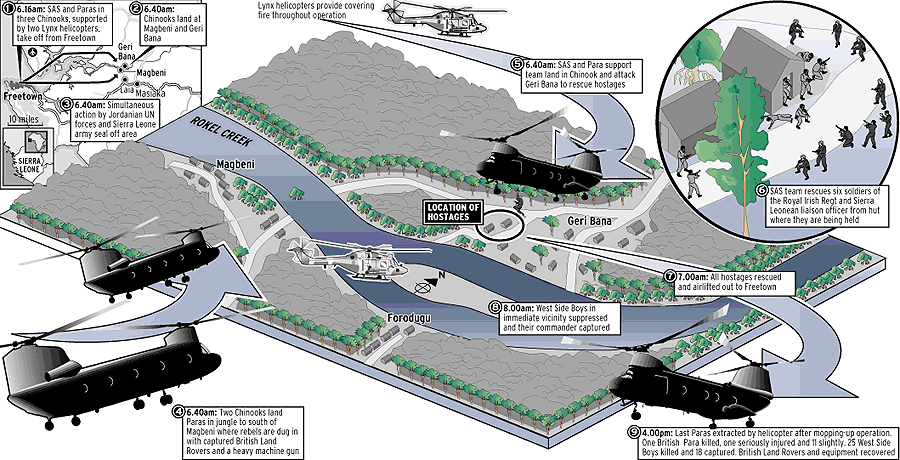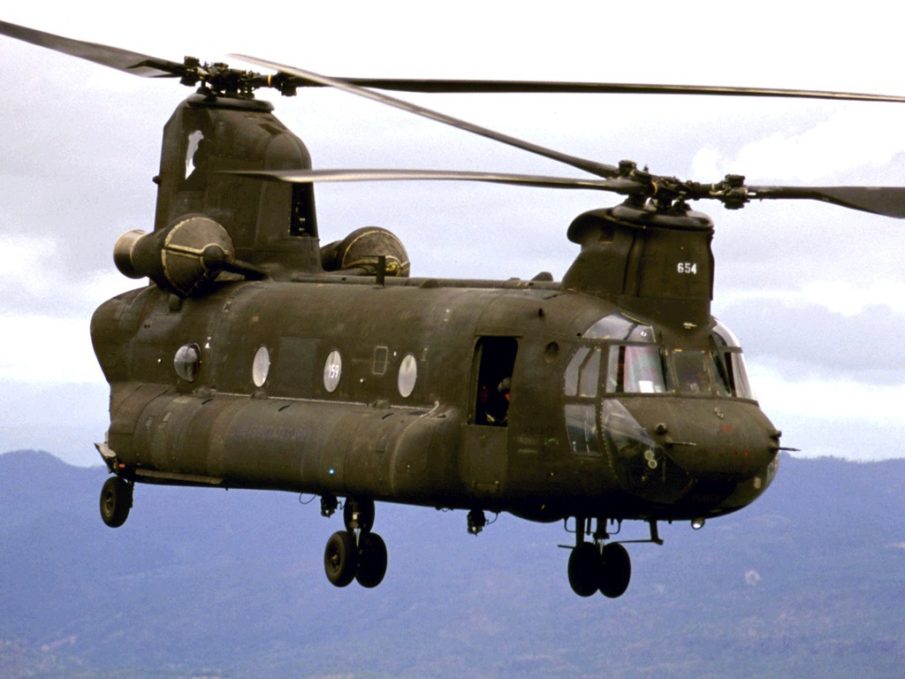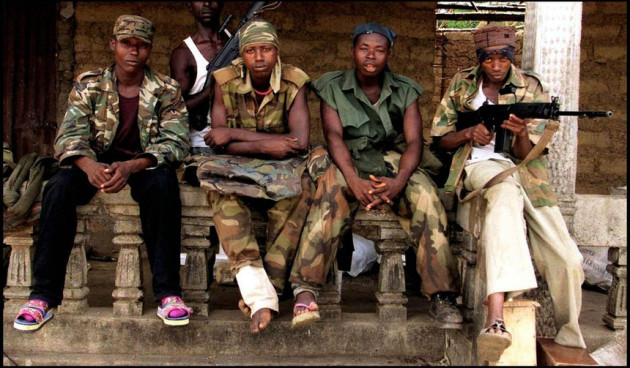There was no sleep that night. The excitement saw to that. I was a heavy smoker in those days and must have got through a pack and a half. When I wasn’t smoking, I was eating. There was nothing much to hand except ‘growlers’—standard army-issue sausages that no one but me seemed to be able to eat.
At dawn, we all assembled for a final briefing. At the end of it, the squadron commander put down his pen and issued a final order.
“Go and give those f *****s a bloody nose from the UK!”
That order was followed up by a rallying speech from the regimental sergeant major— the most inspirational I’d ever heard. I can’t really remember a word of it now, and I’m sure 95 percent of it is unrepeatable, but it certainly worked. By the time we boarded the Chinooks, my body was surging with adrenalin. This time we were definitely going.

Immediately after takeoff, I was hit by a sense of anticlimax. Instead of tearing south, the air assault group of three Chinooks and two Lynx helicopters entered into a holding pattern. I couldn’t believe it. Had some diplomatic solution been found? Would we be forced to stand down again?
But then, with the mighty thrust of the Boeing engine, the twin-bladed monster was off. We flew fast and low. I couldn’t believe the skill of the RAF pilots; they were taking us so close to the dirty brown surface of the Rokel, I felt I could reach down and trail my fingers. Instead, I was so pumped up, I was on my feet banging my mate Dan’s helmet shouting, “Go! Go! Go!” at the top of my voice.
We rounded the bend in the river and hit Rokel Creek when, suddenly, all hell broke lose. As soon as they made visual contact, the West Side Boys opened up with everything they had. The Chinooks answered with their heavy chain guns. All I could think of with all the incoming and outgoing was of one of those glitter balls at a disco reflecting light in all directions.
Our designated landing site was the village soccer pitch. While that made the pilot’s job nice and easy, it was a problem for us. We were being dropped in the middle of a firefight on completely open ground with no cover. Contrary to most reports, not all teams abseiled down by rope. Our RAF boys landed us bang in the middle of the soccer field, rear wheels touching the surface. The plan was for us to disembark, wheel right, and then advance using the chopper as cover before it took off again.
Like most plans, it went out the window in the first few seconds. The moment we hit the ground, we started taking so much fire from the tree line, we became pinned down in the open. Even with my injured hand, I managed to get the Minimi tripod down in record time and return fire, aiming at the muzzle flashes coming from the deep green jungle. I kept giving them short bursts until there was no more flash—then on to the next target.
Then, they opened up on us from the village as well. It dawned on us: In dealing with the immediate incoming fire, we were facing the opposite direction from our objective. It was almost comical when the squad leader, Dan, yelled out, “Right lads! Wrong way!” and we all had to turn around and start engaging the enemy behind us. It was like being on a bloody exercise.











COMMENTS